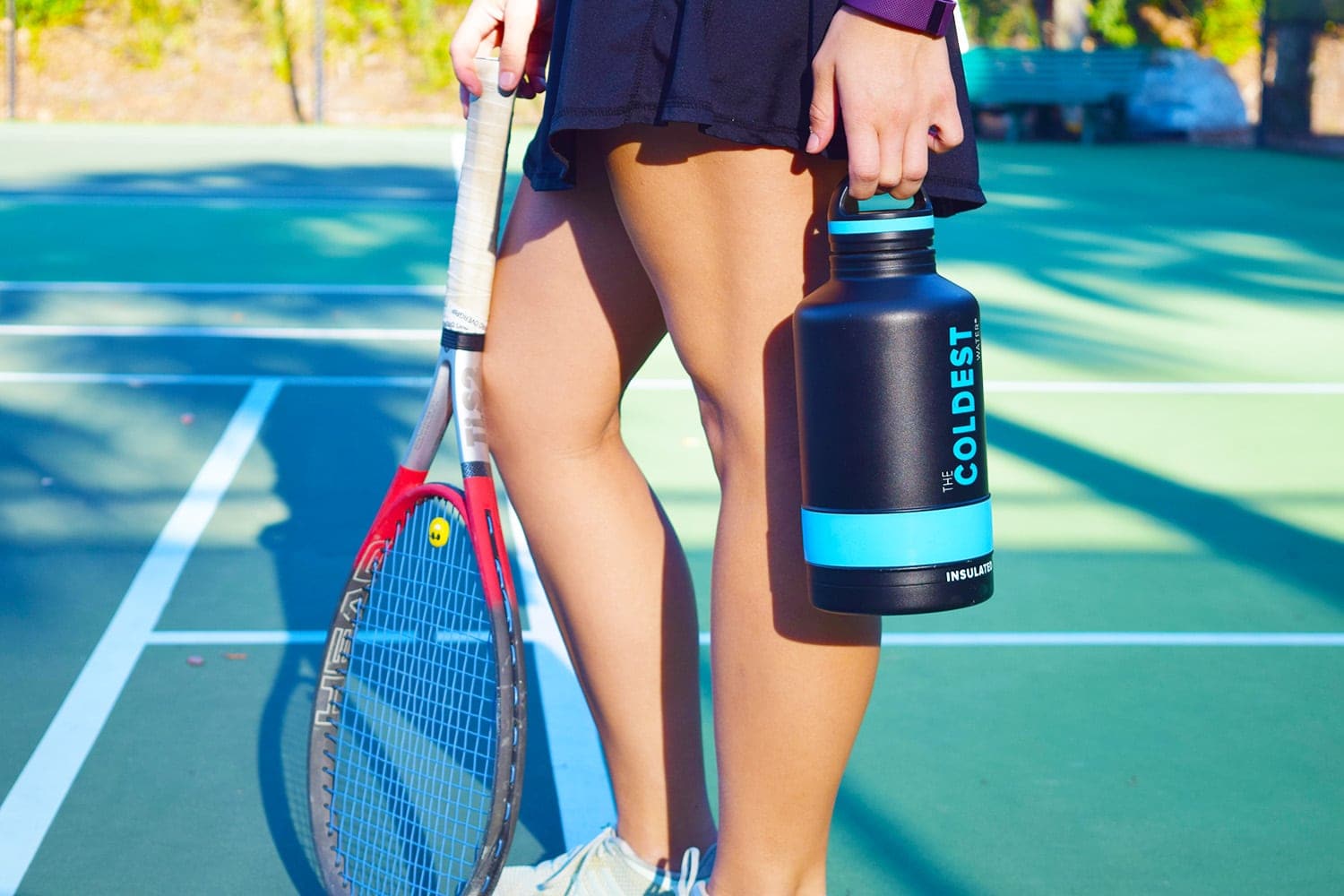How Much Water Should You Drink Per Day?
How much water do you need to drink? Whatever the source you drink (bottle, tap with or without a filter jug), it is important to drink enough every day. Our body is 65% water and it is essential for the proper functioning of our body.
To stay healthy, you need to drink enough each day, especially during hot weather or when physical activity is practiced.
How Much Water Should You Drink Per Day?
How much water should a person drink in a healthy day? There is no simple answer to this question. There are many recommendations (1.5 liters a day at most often), but in reality, your need depends on several factors, including the climate and your level of physical activity.
A human body contains around 65% water or 45 L for a person weighing 70 kg. It’s an average; the actual proportion depends on the age, sex, and health status of each individual. On average, women have a lower proportion of water than men and overweight people have proportionately less than thin people (because fat contains less water than muscles).
Every human loses water each day through sweating, breathing, urine, and stool. For the good functioning of the body, this loss must be replaced by drinks or food containing the water.
SHOP NOW
There are Usually Two Types of Reasoning:
Replacement of Lost Water:
An adult evacuates an average of 1.5 L of urine a day and loses an extra 1 L through perspiration, breathing and bowel movements mainly. Food provides between 20% and 40% of the liquid we need, so it is necessary to drink 1.5 to 2 L of liquid to replace that has been lost.
Dietary Recommendations:
Institutes of medicine recommend that men drink about 3 liters of water a day, and women 2.2 liters.
Factors Influencing Water Requirements:
Your water needs depend on your level of physical activity, the climate in which you live, your health, and increase if you are a pregnant woman or breastfeeding.
You can also read our blog on How Much Water Should an Average Male & Female Drink?
SHOP NOW
Physical Activity:
The more you exercise, the more you sweat, so you need more water to stay well hydrated. A few extra glasses of are enough for moderate effort but for long-term efforts, it is best to drink special sports drinks containing electrolytes, which will replace the lost mineral salts through perspiration and you will avoid cramping discomfort.
Climate:
Warm temperatures and moist air cause more perspiration. During the winter, warm, dry indoor air can also dehydrate you faster.
Health Status:
If you are sick and have symptoms such as fever, vomiting, or diarrhea, you get dehydrated more quickly, so you need to drink more often.
Pregnancy/Breast-Feeding:
Pregnant or breastfeeding women have higher water needs. It is important that they hydrate themselves sufficiently.
Read More: How Much Water A Day Do You Need To Drink To Be Healthy?
SHOP NOW
The Effects of Dehydration:
If you don’t drink enough, your body will gradually become dehydrated. Even moderate dehydration can have the effect of making you less energetic and tiring you. A loss of water representing only 1% to 2% of body weight already represents a beginning of dehydration, with perceptible effects but fortunately reversible quickly after rehydration. If dehydration continues, a loss of between 15% and 20% of the weight may cause death.
A hallmark of a state of dehydration is the color of the urine. For a healthy person, it must be very pale yellow.
The Effects Of Dehydration Are At First:
Thirst, of course…
Tiredness.
Headaches and dizziness.
A dry mouth and throat.
A lack of energy and muscle weakness.
Dark urine.
Lower resistance to heat.
If Dehydration Continues, The Following Effects May Be Felt:
Muscle cramps.
Difficulty swallowing and urinating.
A state of confusion.
Mild dehydration rarely causes complications, but in the most severe cases, the risks are high, especially for young children and the elderly.
Read More: How Much Water Should You Drink to Hydrate for a Football Match?
SHOP NOW
When to Drink and How to Stay Hydrated:
It is not good to wait until you feel thirsty. Indeed, when you are thirsty you are already slightly dehydrated.
To Avoid The Risk Of Dehydration, You Can Follow The Following Recommendations:
Drink a full large glass of water immediately from your stainless steel reusable water bottle. Continue drinking during each meal and between each meal.
Hydrate well before, during and after any exercise.
Do not forget to drink liquid at parties with friends.
Advice to Follow Strictly:
If you use a plastic bottle by filling it with a tap or a filter jug, clean it carefully regularly, and replace it from time to time. It is better to buy a stainless steel reusable water bottle for regular usage. Please note that plastic bottle can release toxic compounds over time when filled with a tap, and must, therefore, be discarded after consumption.
You can also read our blog on The importance of water and Stainless steel 1 Gallon Water Bottle







